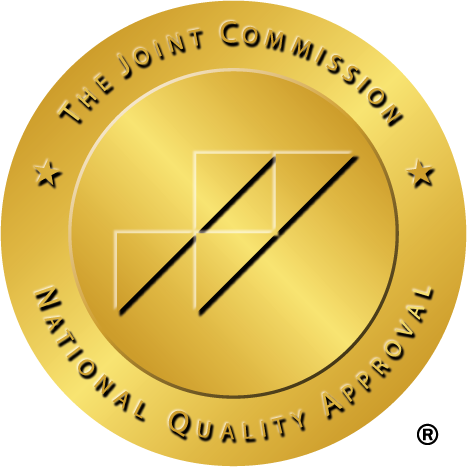Many of us have faced or have known family members who have faced mental health challenges at some time in their lives. However, when this happens, it can be difficult to acknowledge the need to seek additional help to address the issues head-on.
Talking about a psychiatric diagnosis can be difficult, but it’s a crucial part of mental healthcare. Having an understanding of a psychiatric diagnosis is important for individuals with mental health issues, as well as their loved ones and caregivers who want to provide the best possible care and support.
SPEAK WITH AN ADMISSIONS SPECIALIST
What Exactly is a Psychiatric Diagnostic Evaluation?
A comprehensive psychiatric diagnostic evaluation is an integrated biopsychosocial assessment that involves collecting a complete medical and family history of a patient while also exploring their psychiatric medical history and mental health status[1]. This procedure may involve sourcing information from diverse sources such as the patient, other clinicians, community providers, other physicians, family, and friends.
This all-encompassing evaluation offers a meticulous evaluation of the patient’s mental health requirements, taking into account their psychiatric history. A correct diagnosis can result in an apt psychiatric treatment regimen. This process also ensures that any underlying medical concerns are suitably managed to avoid aggravating mental health symptoms.
A standard psychiatric evaluation, also known as a psych eval, comprises several core components that remain consistent across clinicians, albeit with minor variations. These components include:
- Clinical interview – To obtain the patient’s mental health history and current symptoms
- Mental status examination – To assess the patient’s mood, behavior, and thoughts
- Medical examination – To identify any underlying medical conditions contributing to the symptoms and eliminate physical health disorders
- Psychological testing – Which may include psychometric testing, is meant to aid in an accurate diagnosis and evaluation of the patient’s mental health status.
Why Would You Need to Be Psychiatrically Evaluated?
Mental health issues can arise in anyone due to multiple reasons, including substance abuse or traumatic events. These types of illnesses can significantly impair thinking abilities and self-control. To diagnose and treat these mental health disorders, the first step is to undergo an initial psychiatric evaluation.
Psychiatric assessments can be undertaken as either inpatient or outpatient evaluations.[2] Inpatient assessments are typically for individuals suffering from an acute mental illness, such as schizophrenia, requiring hospitalization. However, outpatient evaluations are the norm, allowing patients to schedule appointments with their psychiatrist at their convenience.
How Long Does a Psychiatric Evaluation Take?
Psychiatric evaluations don’t have a specific time limit that they are restricted to. Their total length can vary depending on the unique needs of each patient. That being said, most psychiatric evaluations take anywhere between 1-3 hours, with some cases requiring multiple sessions before a successful diagnosis can be made.
In certain instances, an evaluation can be performed within a single session. Yet, for more intricate cases, it may require multiple sessions. Moreover, the individual may be requested to take questionnaires or tests prior to or subsequent to the evaluation for additional understanding of their psychological well-being.
Types of Psychiatric Diagnostic Evaluation and Psychotherapy Services
There are various types of psychiatric diagnostic evaluations and psychotherapy services available to those seeking mental health care. These can include:
- Cognitive Behavioral Therapy (CBT): Known for effectively addressing anxiety disorders or depression, CBT therapy emphasizes identifying and modifying negative behavior patterns contributing to individual stressors.[3] With a focus on imparting skills and techniques for managing emotions and handling challenging situations, CBT therapists empower patients to achieve a more positive outlook on life.
- Dialectical Behavior Therapy (DBT): DBT therapy combines cognitive-behavioral therapy with mindfulness techniques to manage impulsive tendencies and treat borderline personality or bipolar disorders.
- Psychodynamic Therapy: Psychodynamic therapy is a form of therapy where individuals can examine past experiences that might be causing present behavior and emotions. The therapy requires cooperation with a therapist to discover primary patterns and conflicts that affect the person’s self-perception. By doing this, people can achieve a better comprehension of how their past experiences cause current struggles with mental health.
- Interpersonal Therapy: Interpersonal therapy is a form of therapy aimed at resolving people’s relationship conflicts and patterns with others. It helps individuals cultivate more significant relationships and comprehend how their present relationships could be causing their mental health problems. This therapy is particularly beneficial for individuals experiencing anxiety, depression, or eating disorders.
- Eye Movement Desensitization and Reprocessing (EMDR): EMDR is a therapy that assists people in processing traumatic experiences that are affecting their mental health negatively. It involves revisiting the traumatic experiences while rhythmically moving the eyes side to side, which helps to remove any maladaptive behavior patterns linked with the trauma.
SPEAK WITH AN ADMISSIONS SPECIALIST
Psychiatric Diagnostic Evaluation FAQs
A psychiatric diagnostic evaluation is performed by a psychiatrist. This mental health assessment’s primary goal is to diagnose mental health conditions and design a suitable treatment plan for conditions such as mood disorders, ADHD, or substance use disorder.
Yes, psychiatric diagnostic evaluations can be conducted remotely using telemedicine technology with a trained mental health professional. This option is particularly useful for individuals who live in rural or remote areas or have physical limitations that make it difficult to travel to a mental health facility for an in person session.
Many insurance plans cover the cost of psychiatric diagnostic evaluations. However, it is recommended to check with your insurance provider to confirm coverage details. It is worth noting that some insurance plans may require prior authorization or referral before a psychiatric evaluation can be scheduled.
After the evaluation, the psychiatrist will provide a diagnosis and develop a treatment plan that is tailored to the individual’s specific mental health needs. This treatment plan may include medications, psychotherapy, or a combination of both. The psychiatrist will also schedule follow-up appointments to monitor progress and make adjustments to the treatment plan as necessary.
Psychiatric diagnostic evaluations are generally safe and do not pose any significant health risks. However, the evaluation may involve discussing sensitive or emotional topics that could trigger strong emotions or past traumas. It is essential to communicate openly and honestly with the psychiatrist about any concerns or discomfort during the evaluation to ensure that the process is safe and effective.
Related Topics
Sources
[1] Psychiatric Diagnostic Evaluation and psychotherapy services. CMS.gov Centers for Medicare & Medicaid Services. (n.d.). https://www.cms.gov/medicare-coverage-database/view/lcd.aspx?LCDId=33252 on May 23, 2023
[2] Psychiatric Diagnostic Evaluation and psychotherapy services. CMS.gov Centers for Medicare & Medicaid Services. (n.d.-a). https://www.cms.gov/medicare-coverage-database/view/lcd.aspx?LCDId=33252 on May 23, 2023
[3] National Center for Biotechnology Information. (n.d.-c). https://www.ncbi.nlm.nih.gov/books/NBK279297/ on May 23, 2023



